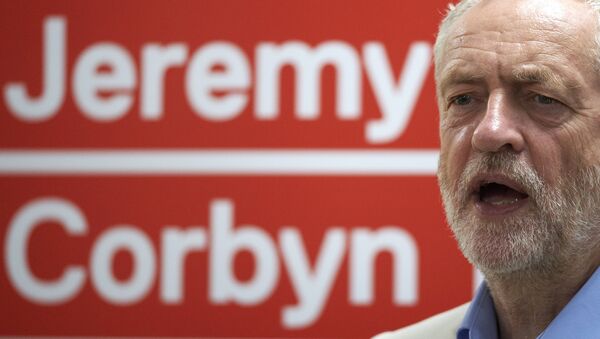The London High Court Thursday (July 28), ruled that Corbyn had the right to be automatically included on the ballot papers, after a leadership election challenge followed a vote of no confidence in him, which he lost by 172 to 40.
Under Labour Party rules, those wishing to stand in a leadership election must have at least 50 signatories from the Parliamentary Labour Party. Since he cannot win more than around 40, he argued successfully that — as the incumbent — he had to right to be automatically included in the ballot, without the need for signatories.
The case was brought by Labour donor Michael Foster against the Party's general secretary, Iain McNicol, after the Labour’s national executive committee (NEC) ruled that Corbyn could automatically be on the ballot paper.
Corbyn's rise and fall was triggered following Labour's defeat at the 2015 general election, allowing the Conservatives, under David Cameron to take power, albeit with a slim majority. Former Labour leader Ed Miliband stood down, paving the way for a leadership race.
We want to build a society where no one & no community is left behind for want of investment, housing or workhttps://t.co/N7g5EBK0nC
— Jeremy Corbyn MP (@jeremycorbyn) July 26, 2016
There were three frontrunners: Andy Burnham, former health spokesman, Yvette Cooper, shadow home secretary and Liz Kendall, shadow minister for care and older people. Then, left-wing firebrand Corbyn joined the race and was seen as a dark horse.
However, because of the voting system, a huge number of people joined the party as supporters and were able to cast a vote. Corbyn won by a landslide — supported by many left-wingers and the unions, who were tired of the party's move to the center ground under Tony Blair and Gordon Brown.

In Corbyn, the party faithful saw a left-winger with strong views against capitalism, who was anti-war and particularly angered by Blair's decision to invade Iraq and who was strongly anti-nuclear weapons.
Party Split
However, he did not enjoy the support of the majority of the Labour members of parliament. They were angered by Corbyn's lackluster support, during the In-Out referendum on the UK's membership of the EU, for remaining in Europe.
He is known to be anti-EU, but towed the party's line, which was to remain.
When the result came through that 52 percent backed leaving the EU, his parliamentary colleagues turned on him and held a vote of no confidence in him, which was won by 172 votes to 40.
Corbyn has refused to move, however, saying he has a mandate from the 2015 leadership election, with the backing of grassroots party members and the unions.
The first leadership debate is Thurs 4 August. Submit your question to the candidates now → https://t.co/DlPC1H6HwB pic.twitter.com/QoTgqPczWv
— The Labour Party (@UKLabour) July 26, 2016
Corbyn is now on track to take on contender Owen Smith, with a summer of campaigning and the result expected in September.



